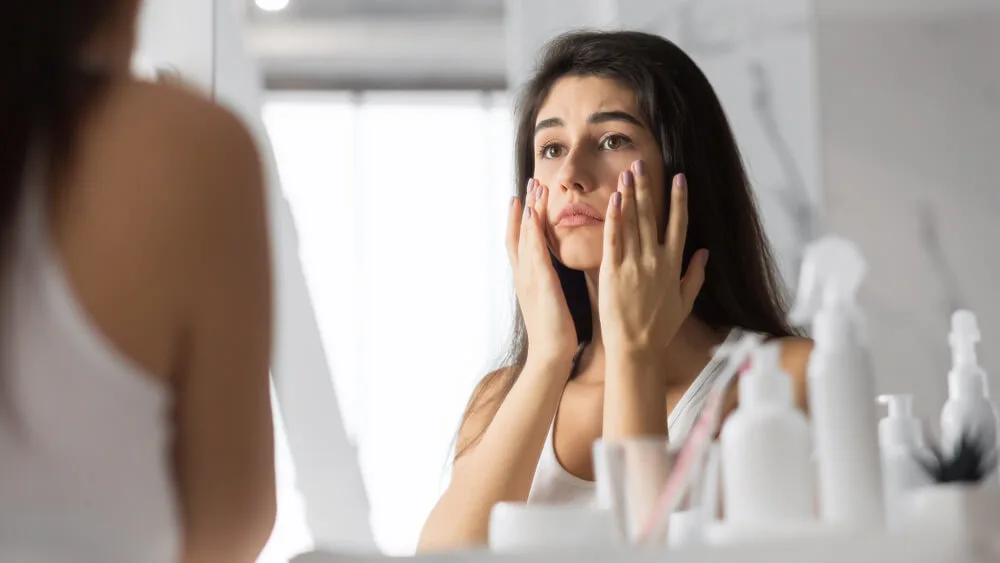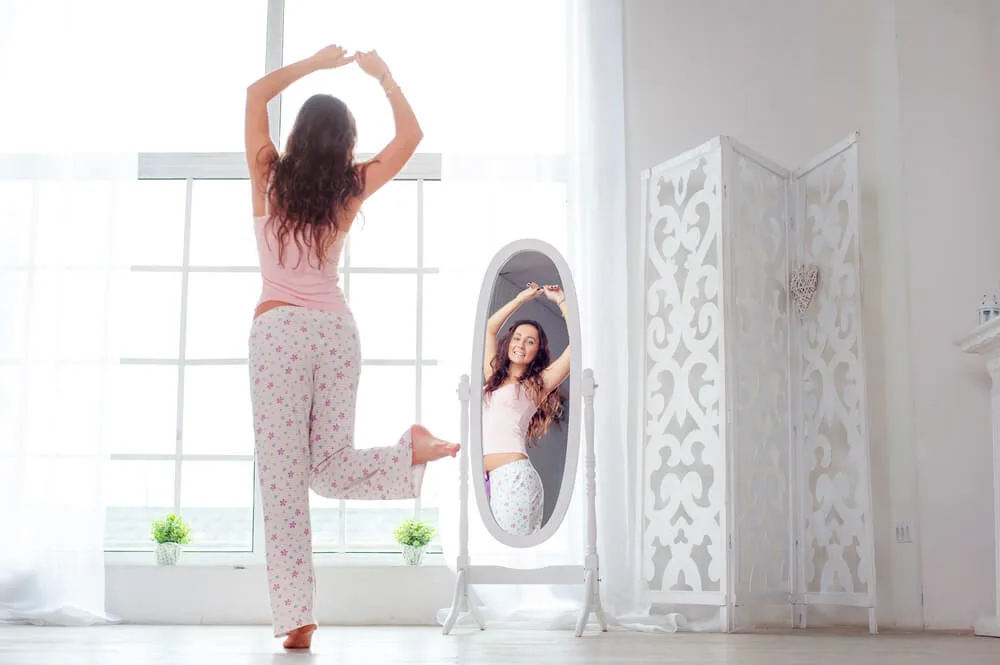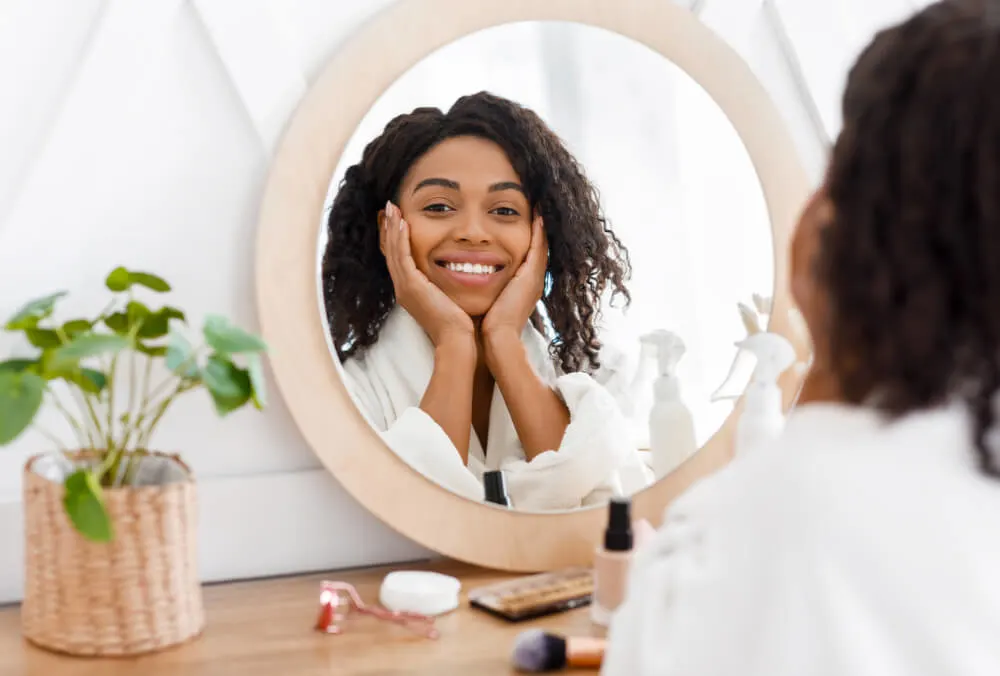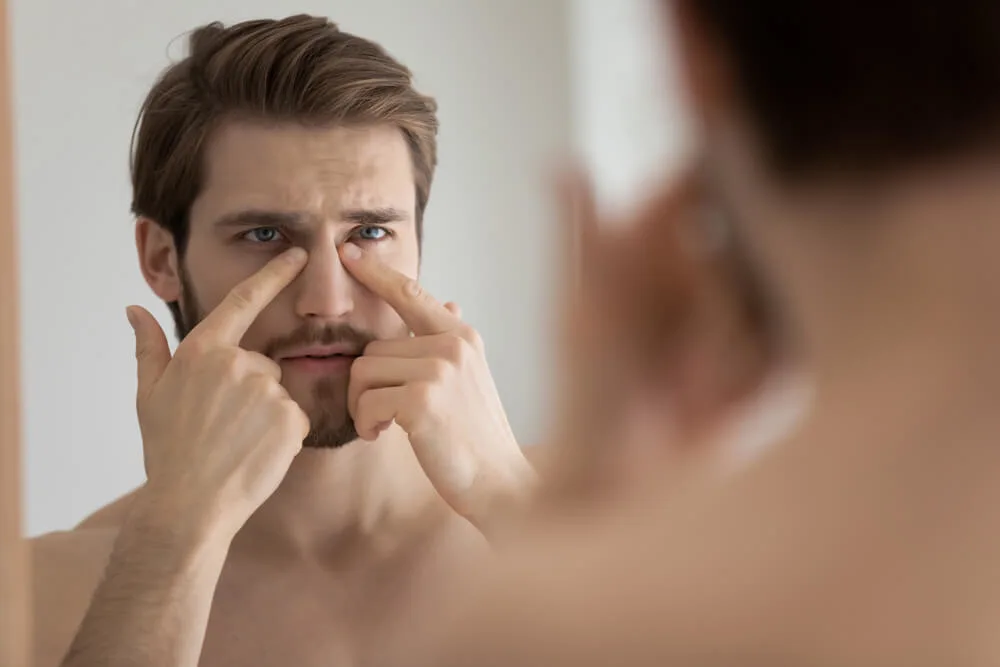We live in the age of visual culture, but that is not the real reason why appearance is so important to us.
You must have heard that in just a few seconds, we already form the first impression about someone and that this first impression is difficult to change.
The visual moment plays an important role in this, but it’s not about how we look. It is about the way we interpret appearance.

It would be a blatant lie to say that looks don’t matter. The thing is that images communicate directly with our emotions, jumping over the barrier of reason with ease.
That’s why we have such a hard time breaking away from first impressions and tend to judge others by their appearance, even when appearance is not important to us.
Your Mindset Is More Powerful than Your Look

When you are preoccupied with your appearance, you actually worry about how others see you.
Instead of the content of the conversation, your focus shifts to your preoccupation with appearance.
That’s why it’s easy to overlook important things in a conversation and important things about the person you’re talking to. In such a situation, other people can notice that you are not really present, that your attention is elsewhere.
And no matter what you look like, people will sense when you’re not 100% there, which can bother them.
Looks does matter, but not in the way you think. When people look at you, they don’t judge how pretty you are.
They intuitively and unconsciously read your emotions through facial expressions, body posture, and gestures.
So, yes, they judge you based on your looks, but not based on your beauty (unless you are a model – but that’s another story).
People can feel when you are insecure, worried, or distracted instantly based on how you look.
It is not about how you dress, how fit, tall or skinny you are. Everything boils down to how you feel about yourself – that’s what people sense and react to.
If You Believe You Are Beautiful – You Are Beautiful

You know those people who are quite average in appearance but hold the reputation of beauty.
When you see them, you don’t understand how they earned such popularity at first glance.
However, when you meet them, they are so nice to you, and you feel so good talking to them, so it becomes clear to you why people love them.
Such people have often received a lot of praise while growing up and have a positive self-image. Thanks to that, they tend to see the beauty in others, so people feel accepted and valued around them.
What you can learn from these people is to shift the focus from your appearance and focus on the beauty you see in the people around you.
Try to communicate with the beauty in other people, and you will start to feel more beautiful yourself.
What Are You Really Afraid Of?

When you worry about how you look, you are actually worried that others will judge or reject you.
Preoccupation with appearance is always a sign of some insecurity. It often includes a false belief that if a person looks a certain way, they will get what they need (respect, success, recognition, love, acceptance, etc.)
So, to stop worrying about how you look, you first need to move your focus to what’s underlying your obsession with looks.
To start, you may think about these questions:
- What does it mean for you if you don’t look well enough?
- What are the consequences of not looking good enough?
- What does it mean for you to look well?
- What makes you believe that you don’t look good enough?
- What will you get if you look the way you desire?
When you answer these questions, think objectively about how your look is connected to what you really want.
You’ll often realize that what you really want has little to do with your appearance.
Don’t Fall Into the Trap of Self-Objectification
It is a commonplace in popular culture to objectify the look of people.
To objectify someone means seeing that person as a collection of bodily parts, not as a whole person. We are all so exposed to objectification that we even start to think about ourselves in those terms.
Once you start valuing yourself through the eyes of people who objectify you, you give up on yourself.
It is important to recognize when you are objectifying yourself. Self-objectification can result in eating disorders, sadness, anxiety, and compulsive body monitoring, among other problems.
Obsession with appearance can become exhausting in many ways. You can become burdened with choosing cosmetics, clothes, or plastic surgery.
And the worst thing is that all those small and big changes you make to yourself never bring the satisfaction you hope for.
Thus, you fall into a vicious circle in which you constantly miss just one more cosmetic treatment or surgery to finally feel good.
The Solution Comes from Within
The next time you are tempted to obsess about your appearance, try to notice what was the trigger for such an urge.
Most often, the messages about appearance we receive from other people or the media are at issue. Once you identify a trigger, practice resisting it.
Tell your inner critic to shut up. Decide how you want to feel in life, what you want to do, and what kind of people you want around you.
Allow your body not to be perfect. Allow yourself to believe that your appearance does not determine your worth.
If you want to change something about your body, don’t fall for quick solutions, but think about what kind of lifestyle is needed to achieve the change you want.
And remember, you are your body’s public relations manager – how you treat it, talk about it, and present it to others is how others perceive it.
